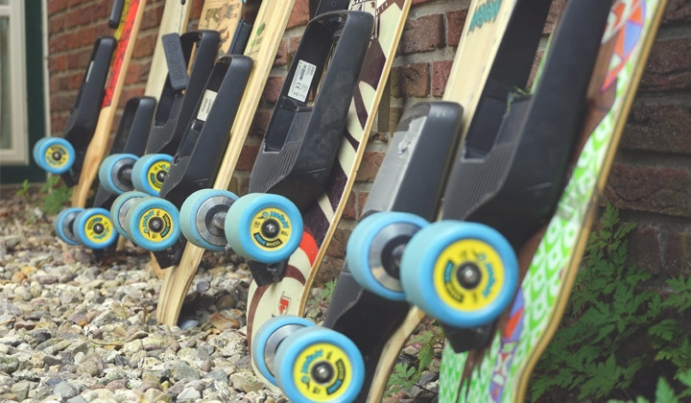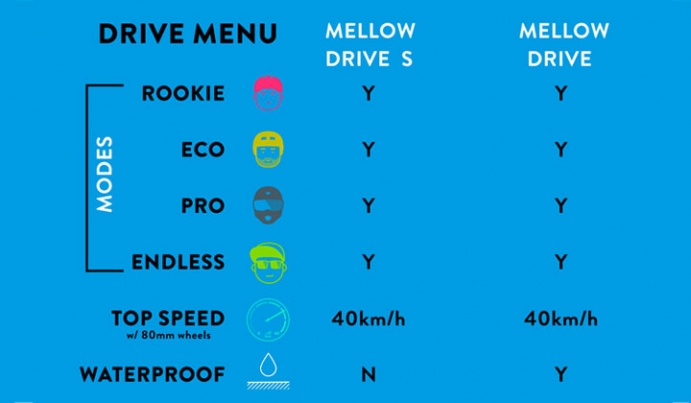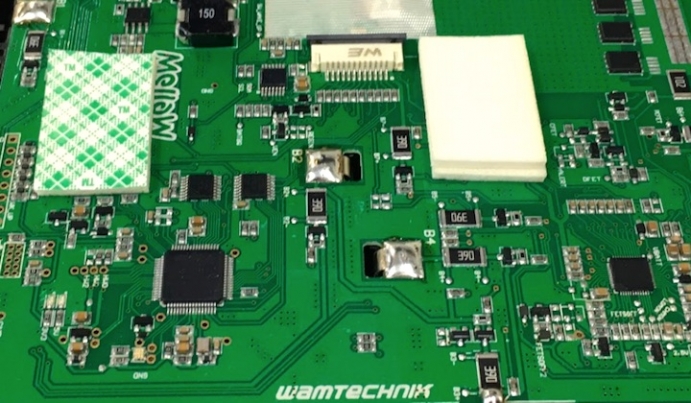An “e-skate” is deceptively simple, attracting many people who’ve never even set foot on a skateboard and putting speeds at their fingertips that only experienced downhill riders would even attempt.
They look like toys, but they pack the power and speed of a tiny electric car - without the protective shell. Just a simple push on the remote, even in beginner modes, can surprise you with speed and acceleration without even a single hill in sight.
Always Wear a Helmet
If you have one takeaway from this article, that was it. But if you’re reading this because you’ve bought, purchased or gifted an electric skateboard, then read on.
Wear Safety Gear
When in doubt, wear full protective gear: helmet, knee, elbow and wrist protection, being careful to choose models that don’t interfere with your control of the remote. Sliding gloves used by longboarders are used for slides and braking, but have large plastic pucks that may prevent your fingers from moving freely.
Special full-face sport helmets that resemble motorcycle helmets are increasingly popular among riders of faster pre-built and DIY electric skateboards who take greater risks than the typical rider. Since the best helmet is the one you’re wearing, take care not to choose a model you might find impractical or too heavy to always have on hand when you ride.
Parents might take their kids down to the local skate shop when buying a helmet, letting them choose their own design and, most importantly, getting awesome stickers to plaster all over it at the counter. This will go a long way to not having to nag when they leave the house, board in hand.
Learn the Basics
Learn and master the basics of skateboarding before attempting to e-skate: how to stand and position your feet, and also how to kick push, turn and brake (see below). It is important to know how to approach certain types of terrain, such as breaks in the pavement or road. (approach at a 45 degree angle and remain light on the board with a slight jump and knees bent).
Remember that e-skating is in its infancy. Drivers, bikes and pedestrians who see you coming may often misjudge how fast you are actually moving, leading you to getting cut off, ignored, or surprised.
Know the Limits
Know the limits of your new ride and be aware of your own. Every rider should only ride at speeds at which they can stop by using normal skateboard techniques such as foot braking. We need to be especially careful when kids try electric skateboards.
While “regen” brakes on e-skates are identical to those on electric cars, they don’t have mechanical brakes which could deal with the enormous amounts of kinetic energy at high downhill speeds. System errors, regen energy overload and low torque at very high RPM are all unavoidable and sometimes unforeseeable reasons that can lead to one thing: loss of braking.
Riding an e-skate at speeds higher than their advertised top speed can be very risky, so take care when riding downhill. This includes the Mellow Drive - our dual braking system is above-average protection for you and the battery in the normal operating range, but above its top speed of 40km/h braking gradually weakens to 40% power and will not bring you to complete stop. At extreme sport-like speeds above 50 km/h braking is no longer possible.





